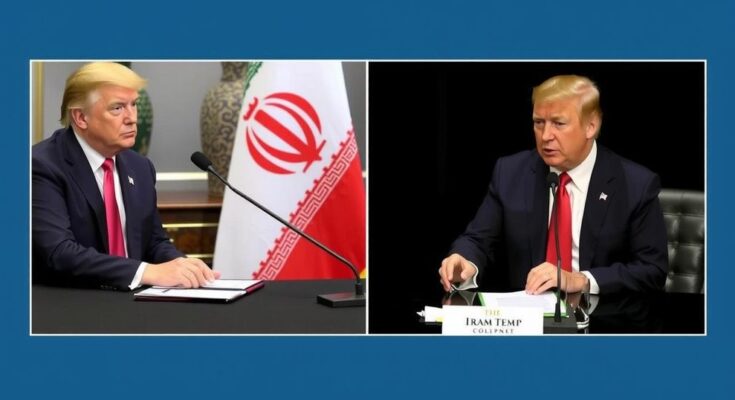Geneva has hosted talks between Iran and the E3 countries (Germany, France, UK) regarding Iran’s nuclear program, taking place before Donald Trump’s return to the White House. The discussions focus on sanctions relief and nuclear issues. Despite being labeled as consultations rather than negotiations, officials characterize the talks as constructive and point to a shared goal of finding a diplomatic solution.
On January 16, 2017, Geneva facilitated discussions between Iran and the European powers—Germany, France, and the UK—regarding Iran’s nuclear program, coinciding with the imminent inauguration of Donald Trump as President of the United States. These talks follow previous discreet negotiations in November between Iran and the three European nations amidst concerns about Iran’s advancement in nuclear capabilities. The closed-door meetings, whose locations and participants remained undisclosed, involved Deputy Foreign Minister Majid Takht-Ravanchi of Iran along with his European counterparts.
The discussions reportedly aimed at addressing mutual interests, notably the lifting of sanctions and the potential for resolving the ongoing tensions surrounding Iran’s nuclear developments. Iranian officials characterized the dialogue as “serious, frank and constructive” while asserting that the primary goal was to negotiate the relief of sanctions. However, the German foreign ministry clarified that the meetings constituted consultations rather than formal negotiations.
The dialogue represents an effort by the E3 countries to pursue a diplomatic resolution amid heightened concerns over Iran’s nuclear activities, particularly after Tehran announced further enrichment of uranium. French President Emmanuel Macron underscored the significance of Iran, labeling it a pivotal strategic challenge. The backdrop of these discussions is also marked by the scheduled return of Donald Trump, whose administration previously adopted a stringent policy against Iran’s nuclear ambitions, further complicating the negotiations.
The Iran nuclear talks are critical given the historical context of the Joint Comprehensive Plan of Action (JCPOA) established in 2015, which sought to curb Iran’s nuclear activities in exchange for sanctions relief. Tensions escalated when President Trump withdrew the United States from the JCPOA in 2018, reinstating severe sanctions that led Iran to resume enriching uranium beyond the deal’s stipulations. The current discussions reflect ongoing attempts by European powers to mitigate the nuclear threat while considering the impending change in U.S. policy with Trump’s return to office, potentially challenging diplomatic efforts.
The recent talks in Geneva concerning Iran’s nuclear program illustrate a delicate balancing act for European powers striving to secure an agreement amidst the backdrop of a potentially adversarial U.S. administration. The negotiations underline the urgency of addressing Iran’s nuclear advances and the broader geopolitical implications for Middle Eastern stability. As the discourse continues, both sides must navigate complex dynamics to achieve a sustainable resolution that prioritizes regional security.
Original Source: www.swissinfo.ch




